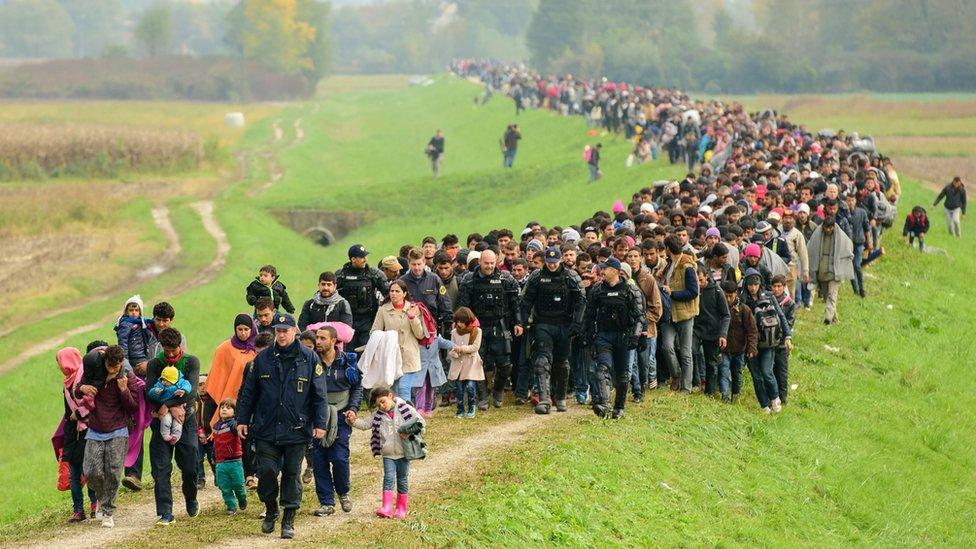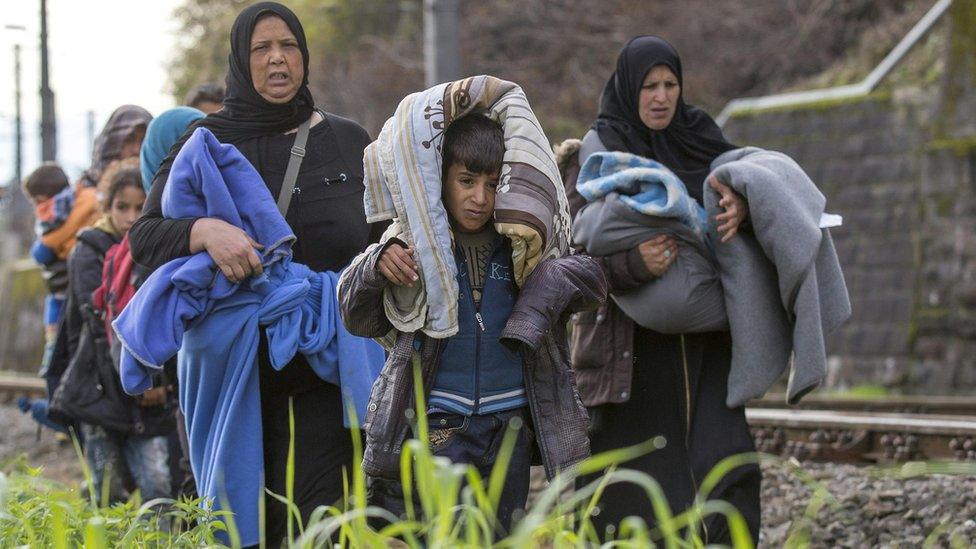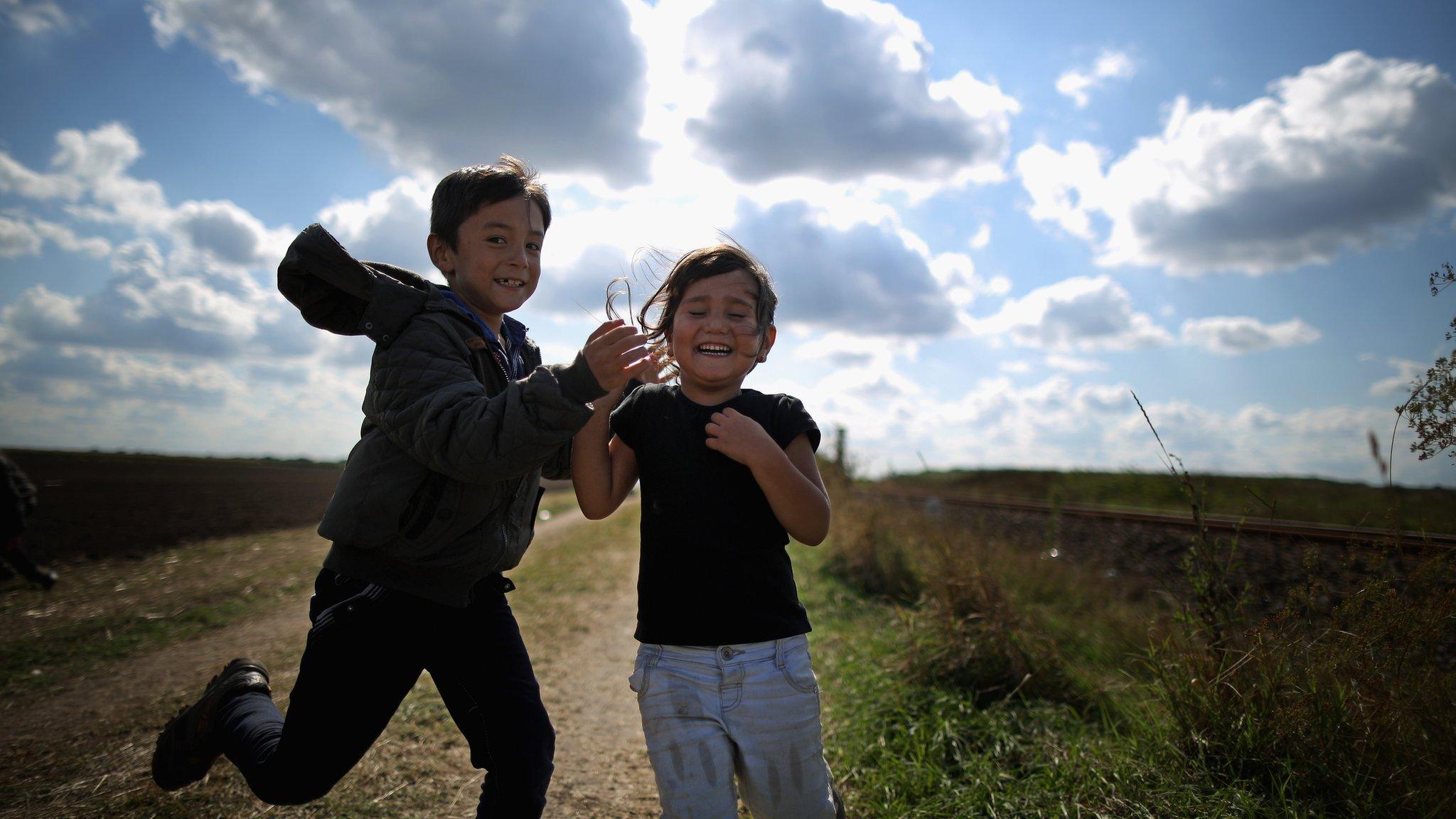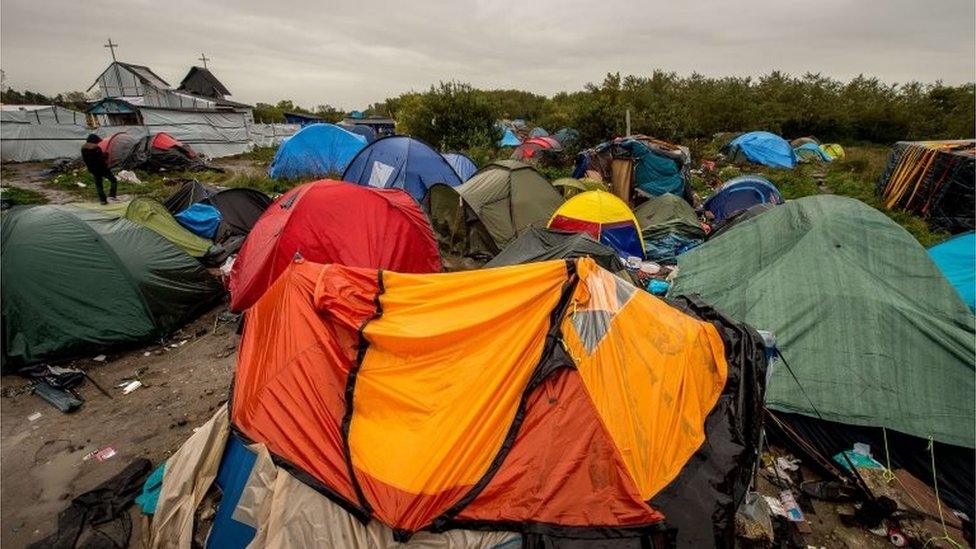Migrant crisis: Slovenia seeks EU help over influx
- Published

Thousands of migrants continue to arrive in Slovenia from Croatia
Slovenia has asked the EU for police officers and extra equipment to deal with the thousands of migrants entering the small Alpine country from Croatia.
Slovenia's Prime Minister Miro Cerar did not rule out building a fence along the 670km (415-mile) border with Croatia. Hungary has fenced off its borders with Croatia and Serbia.
Nearly 50,000 migrants have entered Slovenia since last Saturday.
The EU Commission says it is prepared to send support staff to Slovenia.
Slovenia has requested tents, blankets and other supplies under the EU's disaster relief programme, Reuters news agency reports.
Most of the migrants - including many refugees from the conflicts in Syria, Iraq and Afghanistan - want to reach Germany to claim asylum.
Slovenia has protested to Croatia for continuing to let migrants cross the border by train. The crisis has also caused tension between Croatia, Hungary and Serbia.

Migrants are crossing into Austria via a railway line - despite passing trains
The Commission will chair an emergency summit in Brussels on Sunday, where Balkan and Central European leaders will try to co-ordinate action to control the migrant influx.
In France, police moved more than 1,300 migrants out of a disused Paris school on Friday, where they had been staying for months in squalid conditions. They were transferred to several special migrant centres.
Sleeping rough
Earlier, hundreds more migrants arrived in Spielfeld on Austria's border with Slovenia, the Austrian state broadcaster ORF reports.
Some 1,500 are already waiting there, hoping to get permission to travel north.
Several hundred had to spend the night outdoors in the cold because of a lack of beds, ORF reported, citing Red Cross sources.
Austrian authorities are concerned that many migrants reached Spielfeld by walking along a railway line - a risky route, as rail traffic has resumed.
Dobova, on Slovenia's border with Croatia, has also become a migrant bottleneck, where many have had to sleep rough in the cold, a reporter for Germany's ARD news said.
But a delivery of camp beds and field toilets arrived there during the night and the migrants also got hot tea, the reporter said.
On Thursday Slovenia reported that 12,000 migrants had arrived in one day - a record in the current crisis in Central Europe.
New German rules
Germany is expecting at least 800,000 asylum seekers this year - about four times the number it handled last year.
A package of measures to speed up deportations of failed asylum seekers from Germany will take effect this weekend - a week earlier than planned.

The influx includes many asylum seekers from Albania, Kosovo and other Balkan countries, which Germany now considers safe. Citizens of those countries generally have their claims rejected.
The EU is deploying specialist teams to Italy and Greece, where new "hotspots" are being set up to register the many migrants arriving by sea.
The Commission says that EU member states have so far pledged 854 places for asylum seekers to be relocated within the EU, after agreeing to relocate 160,000 currently in Italy and Greece.
Commission spokesman Margaritis Schinas said the numbers were "not what the Commission would have been looking for" at this stage, but expressed hope that the process would gain traction in the coming weeks.
- Published4 March 2016

- Published22 October 2015
